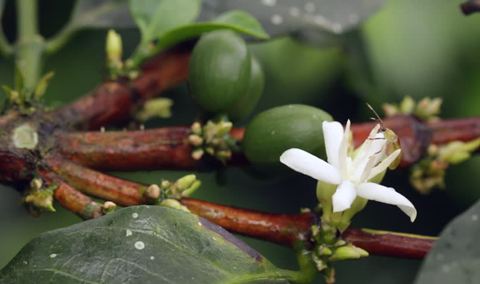Coffee production in India is primarily concentrated in the hilly regions of South Indian states such as Karnataka, Kerala, and Tamil Nadu, located in the WESTERN GHATS. Among these regions, coffee GROWN IN KARNATAKA is renowned for being of exceptional quality, as it is cultivated in the shade rather than under direct sunlight, making it one of the finest coffee varieties worldwide.
The origins of coffee are shrouded in legends, but its widespread and enduring popularity is a legend in itself.
The saga of Indian coffee commenced with the planting of 'Seven seeds' of 'Mocha' during 1600 AD by the revered saint Baba Budan in the courtyard of his hermitage on 'Baba BudanGiris' in Karnataka. Initially, the plants were considered a garden curiosity and spread gradually through back yard plantings over a significant period.
COFFEE FORESTS IN INDIA ACCOMMODATE DISTINCTIVE TYPES OF FLORA AND FAUNA WHILE PROMOTING BIODIVERSITY IN A MAJOR WAY.
Coffee in India is grown under a canopy of thick natural shade in ecologically sensitive regions of the Western and Eastern Ghats. This is one of the 25 biodiversity hotspots of the world. Coffee contributes significantly to sustain the unique biodiversity of the region and is also responsible for the socio-economic development in the remote, hilly areas.
COFFEE PLANTERS IN INDIA PLAY A VITAL ROLE IN PROTECTING FORESTS AND WILDLIFE.

